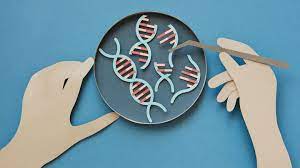Aging is an inevitable process that brings about various changes in our bodies, including cognitive function. As we grow older, concerns about memory loss and cognitive decline become more prevalent. However, recent studies suggest that having a positive attitude towards aging could potentially help reverse memory loss and maintain cognitive health. This article delves into the connection between a positive mindset, brain health, and memory improvement.
The Mind-Body Connection
The Impact of Negative Beliefs
Negative beliefs about aging can lead to a self-fulfilling prophecy. People who hold negative stereotypes about aging tend to experience increased stress, anxiety, and depression. These psychological factors contribute to cognitive decline and memory loss.
The Power of Positivity
Conversely, individuals who maintain a positive attitude towards aging tend to lead healthier lifestyles and engage in activities that stimulate the brain. A positive outlook can lower stress levels, reduce the production of harmful hormones, and encourage the growth of new brain cells, which is essential for memory preservation.
Neuroplasticity and Cognitive Resilience
Understanding Neuroplasticity
Neuroplasticity refers to the brain’s ability to reorganize itself by forming new neural connections throughout life. This remarkable feature of the brain allows it to adapt to new experiences, learn from them, and even repair damage.
Cognitive Resilience through Positive Aging
A positive attitude fosters cognitive resilience by enhancing neuroplasticity. When we approach aging with optimism, we are more likely to engage in activities that challenge our brains, such as learning new skills or engaging in social interactions. These activities strengthen neural connections, ultimately boosting memory function.
Social Engagement and Brain Stimulation
The Social Aspect
Maintaining strong social connections is a crucial factor in promoting cognitive health. Seniors who actively participate in social activities, such as clubs, volunteering, or spending time with loved ones, often experience better memory retention and overall brain function.
Keeping the Brain Active
Engaging in mentally stimulating activities, like puzzles, games, and hobbies, is essential for preventing memory loss. A positive attitude encourages individuals to participate in these activities, which can help keep the brain active and maintain cognitive vitality.
Stress Reduction and Hormonal Balance
Stress’s Impact on the Brain
Chronic stress can lead to the overproduction of stress hormones like cortisol, which can damage brain cells and impair memory. Negative perceptions of aging can increase stress levels, contributing to cognitive decline.
Promoting Hormonal Balance
Positive aging attitudes are linked to reduced stress levels and balanced hormonal production. Dopamine and serotonin, the “feel-good” hormones, are released when we maintain a positive mindset. These hormones play a significant role in preserving memory and cognitive function.
Conclusion
In conclusion, the power of a positive attitude towards aging should not be underestimated. Research shows that embracing a positive perspective can have tangible effects on memory preservation and cognitive health. By challenging negative stereotypes, engaging in social activities, keeping the brain stimulated, and reducing stress, we can potentially reverse memory loss and enhance our overall quality of life as we age.








